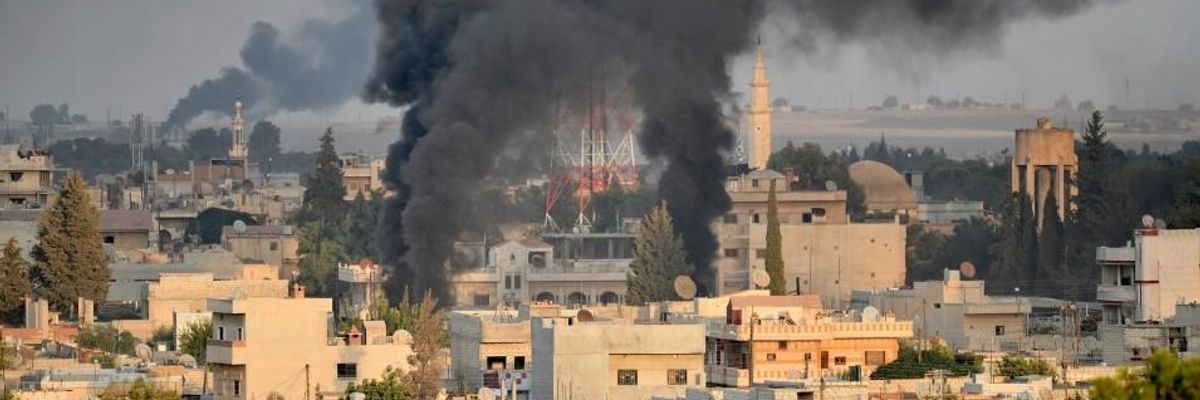In a late afternoon announcement Monday, President Donald Trump declared he would sanction Turkey, a NATO ally of the U.S., for its attack on the Kurdish people in northeast Syria--an attack that took place after Trump greenlit the assault on October 7 by withdrawing American personnel from the area.
"Too little, too late," tweeted Harvard's Nicholas Burns. "None of this would have been necessary if Trump had kept our troops in place."
Trump reportedly made the decision after a phone call with Turkish President Recep Erdogan on October 6. By Monday, domestic political backlash was overwhelming and Trump offered up sanctions.
Promising to "swiftly destroy Turkey's economy if Turkish leaders continue down this dangerous and destructive path," Trump announced imminent sanctions that would address "Turkey's destabilizing actions in northeast Syria."
Turkish attacks on the Kurds in Syria have horrified the world since beginning last week. The assault has been by all accounts relentless and has resulted in a number of ISIS prisoners being set free from their prisons. Kurdish forces have been at the frontline of fighting the extremist group.
While the U.S. has withdrawn military personnel from the area, the answer isn't to reintroduce soldiers, Khury Petersen-Smith wrote for In These Times.
"If the U.S. wants to help the Kurds today, the answer is not more permanent war -- that's part of what's made life so miserable for Kurds and so many others across the Middle East to begin with," wrote Petersen-Smith.
And of course the president is disinterested in the human cost of the attacks, as Business Insider reporter John Haltiwanger pointed out.
"Trump's statement on hitting Turkey with sanctions over the military operation in Syria does not mention the Kurds once," said Haltiwanger.
NBC reporter Richard Engel observed that the conflagration in northeast Syria is part of a broader theme emerging across the region where borders are being redrawn. It's not just Turkey--as Common Dreams reported on Sunday, Kurdish forces in northeast Syria joined forces with the Syrian government to fight back against Turkey, a major diplomatic move that will have consequences for the entire Middle East.
"Turkey is grabbing a piece of Syria," said Engel. "The Kurds and Syrian army, now aligned, are fighting to hold on to what they can."

